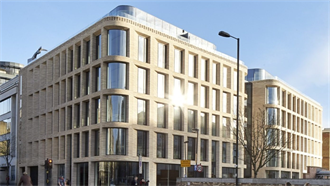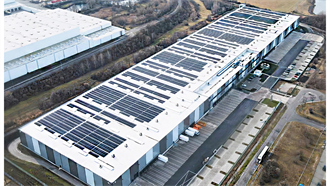Berlin has been ranked the top city for investment and development for the fourth year in a row by Europe’s real estate community.
The German capital came first out of 31 cities in Emerging Trends in Real Estate Europe 2018, the annual forecast published by the Urban Land Institute and PwC. The report is based on the opinions of more than 800 property professionals.
Paris was placed 14th, while London languishes near the bottom for the second year running, in 27th place.
In joint second spot this year were Frankfurt and Copenhagen, while another German city, Munich, was fourth and Madrid jumped up four places to fifth. Hamburg and Dublin were displaced from the top 5, and were ranked sixth and seventh respectively for their prospects next year.
More optimism
With an improving macroeconomic outlook for the eurozone and less political instability, combined with real estate's continued attractiveness as an asset class, respondents were more optimistic than last year about their European business prospects. About half predict that profits and head-counts will increase next year and 42% expect business confidence to increase, a 10% jump.
Equity and debt are expected to be just as plentiful in 2018, despite the threat of rising interest rates, while this year’s high levels of investment are forecast to continue.
The fact that German cities once again took four of the top 10 spots in the report's score card of prospects 'is no surprise' says the report’s section discussing Markets to Watch. 'Germany has been steady state for a long time now. With Berlin, people truly believe it’s going to become a major city', a pan-European financier says.
London's lowly position is, on the face of it, at odds with demand from investors. On Monday Savills predicted that total investment volume in central London during 2017 will exceed £20 bn (€22.7 bn), and could be shaping up for a record year beating the £21.6 bn invested in 2014.
But Brexit remains a live issue and a source of frustration. 'There is a strong consensus that it will be at least partly responsible for both investment and values falling in the UK during 2018,' the report says. Nevertheless, few question London's long-term status as a destination for global capital.
Logistics versus retail
Logistics was the most popular property asset class for investors next year with niche residential sectors such as student housing, senior living and healthcare also seen as good bets. Copenhagen's booming residential market was one reason for its second-place ranking this time.
Many respondents reported that they are shying away from retail which is affected by long-term restructuring. Out-of-town shopping centres ranked last out of the 23 sectors which were ordered by their prospects next year; retail parks were placed 20th and city centre shopping centres came only slightly higher in 16th place.
Figuring out new customer demands as well as the trend of 'space as a service' was highlighted by those interviewed. 'Our conversations demonstrated that technology is increasingly viewed as one of the key trends affecting real estate,' said Lisette van Doorn, chief executive of ULI Europe.
'We see growing emphasis on the impact technology has on all aspects of real estate, ranging from the changing behaviour or users to the real estate management and valuation process, and the new skills needed to successfully adapt to this new reality,' she concluded.



































